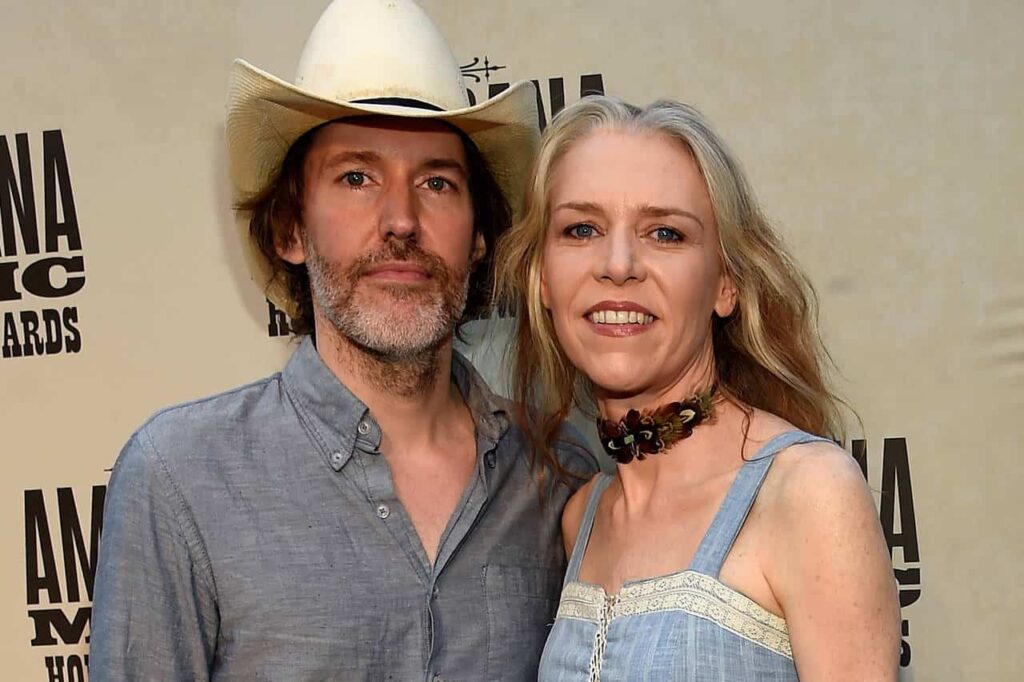
A Quiet Rebellion Against the Tide of Change
In the year 2001, as the digital revolution began to truly reshape the landscape of the music industry, a voice emerged with a starkly different message, a gentle yet firm commentary on the shifting times. That voice belonged to the immensely talented Gillian Welch, and the song that resonated with a quiet power was “Everything Is Free”. Released on her third studio album, the profoundly moving “Time (The Revelator)”, this unassuming track, while not a chart-topper in the conventional sense, peaking at number 37 on the Billboard Adult Alternative Songs chart, has since etched itself into the hearts of many as a poignant reflection on value, art, and the intangible costs of a rapidly evolving world.
The story behind “Everything Is Free” is as simple and profound as the song itself. In an era where file-sharing was becoming rampant, and the notion of paying for music was being challenged, Gillian Welch and her longtime musical partner, David Rawlings, penned this introspective piece. It wasn’t an angry denouncement or a bitter lament; rather, it was an observation, a thoughtful consideration of what it means when something as deeply personal and painstakingly crafted as music becomes readily available without any financial exchange. One can almost picture them, perhaps in their Nashville home, the strains of their acoustic instruments filling the air as they contemplated this seismic shift. There’s a sense of wonder, tinged with a touch of melancholy, in the lyrics, a recognition of the double-edged sword of accessibility.
The meaning of “Everything Is Free” delves into the heart of artistic creation and its inherent worth. Welch‘s lyrics, delivered with her signature understated grace, speak of the paradox of abundance leading to devaluation. Lines like “Everything is free now / That’s what they say” carry a weight of both acceptance and a subtle questioning. The subsequent verses explore the artist’s perspective: the long hours spent honing their craft, the emotional investment poured into each note and lyric, and the unsettling feeling when that labor of love is suddenly deemed to have no monetary value. It’s not merely about the money, one senses, but about the recognition of the effort, the acknowledgment of the artistic spirit that fuels the creation.
The beauty of “Everything Is Free” lies in its gentle approach. It avoids accusatory tones, instead opting for a contemplative stance. It invites listeners to consider the implications of this new reality, not just for musicians, but for all creators. What happens to the intrinsic value of something when it can be copied and shared endlessly? What is lost when the connection between the artist and the audience is mediated by a sense of effortless acquisition? These are the questions that linger long after the song’s quiet final notes fade away.
“Time (The Revelator)”, the album from which “Everything Is Free” hails, is itself a masterpiece of Americana, a collection of songs that feel both timeless and deeply rooted in tradition. Welch and Rawlings‘ minimalist instrumentation, often featuring just acoustic guitar and their intertwined vocals, creates an intimacy that draws the listener in. The album as a whole explores themes of history, memory, and the passage of time, and “Everything Is Free” fits perfectly within this context, serving as a reflection on a specific moment in time that would have lasting repercussions.
While “Everything Is Free” may not have dominated the airwaves like some of its contemporaries, its impact has been profound and enduring. It has been covered by numerous artists, each bringing their own interpretation to its thoughtful lyrics, further solidifying its status as a significant commentary on the digital age. For those of us who remember a time before the ubiquity of the internet, the song evokes a sense of nostalgia for a different era, a time when music felt more tangible, more precious, perhaps because it required a more deliberate act of seeking it out and acquiring it. Gillian Welch’s gentle masterpiece reminds us that while progress marches on, it’s always worth pausing to consider what we might be losing along the way. It’s a song that speaks to the enduring value of art in a world that sometimes seems to believe that everything, eventually, should be free.